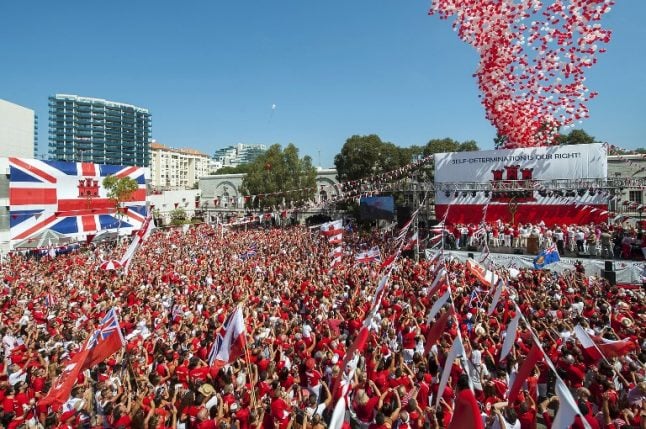Each September 10 on Gibraltar’s National Day, residents of the Rock cram into Casements Square and in a show of fervent patriotism would whoop and cheer in a sea of red of white.
For 25 years, the highlight of the event was the release of 30,000 red and white helium balloons – one to represent each of Gibraltar’s residents.
“Seeing the red and white balloons floating in the sky has evoked passion and sentiment in a huge number of Gibraltarians as the symbolic representation of our freedom,” insisted a spokesman for the Self Determination for Gibraltar Group, back in 2016.
Then someone pointed out that it wasn’t all that environmentally friendly and in 2016 the mass balloon release was stopped.
READ MORE: Clean seas campaign launched on Spanish coast after sperm whale beached full of plastic
Now authorities there have gone one step further and have introduced legislation banning the deliberate release of helium filled balloons.
“The Government has published Regulations to ban the deliberate release of gas-filled balloons,” said a statement released by the Government of Gibraltar on Thursday.
“This is a measure that ratifies the voluntary decision taken some years ago not to release balloons on National Day, a move that gained great international acclaim,” it continued.
“It will now be an offence to do so, and follows similar legislation in other countries. In this way Government wants to reiterate its commitment to clean seas, free of plastics and other non-biodegradable materials which cause so much harm to wildlife.”
The decision in Gibraltar was made after nearly a decade of campaigning by the Gibraltar Ornithological and Natural History Society and other local organisations to end the polluting practice.
“Balloons are mistaken for food by many species of wildlife, especially turtles. Once balloons have been eaten they can block digestive systems and cause animals to starve. The string on balloons can also entangle and trap animals,” it said in a campaign statement. They balloons can also take years to decompose.
Gibraltar’s position at the mouth of the Mediterranean makes the ban even more important. The Straits of Gibraltar are rich in marine life and migratory birds crossing between Europe and Africa.
READ ALSO: 'Bring your own Tupperware': Carrefour tells shoppers in fight against plastic



 Please whitelist us to continue reading.
Please whitelist us to continue reading.
Member comments